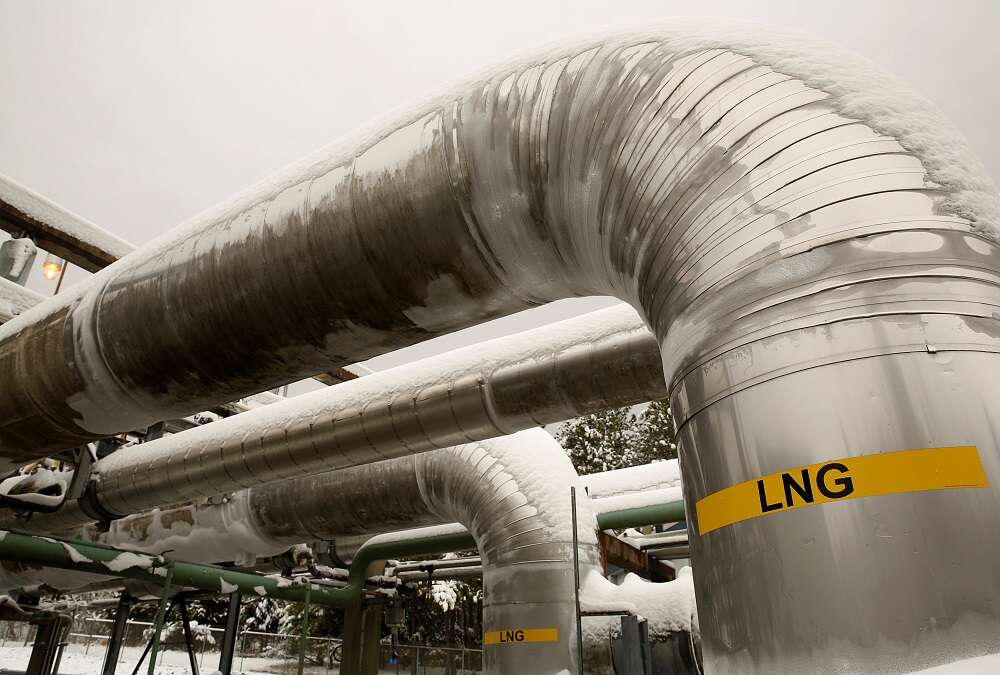
By Dhara Ranasinghe
LONDON (Reuters) – Soaring gas prices that threaten to push up winter fuel bills, hurt consumption and exacerbate a near-term spike in inflation are another blow to a world economy just getting back on its feet after the coronavirus shock.
The gas market chaos, which has driven prices 280% higher in Europe this year and led to a 100%-plus surge in the United States, is being blamed on a range of factors from low storage levels to carbon prices to reduced Russian supplies.
For a graphic on Gas prices soar this year:
https://fingfx.thomsonreuters.com/gfx/mkt/zjpqkjymepx/gasprices2009.PNG
So high are tensions that several European Parliament lawmakers have demanded an investigation into what they said could be market manipulation by Russia’s Gazprom.
Whatever the causes, the surge carries major market implications:
1/GROWTH
Analysts say it’s too early to downgrade economic growth forecasts but a hit to economic activity looks inevitable.
Morgan Stanley reckons the impact in the United States, the world’s biggest economy, should be small. While over a third of U.S. energy consumption in 2020 was supplied by natural gas, users were predominantly industrial, it notes.
Overall though, higher gas prices raise the risk of stagflation – high inflation, low growth.
“It is quite clear there is a growing sense of unease about the economic outlook as a growing number of companies look ahead to the prospect of rising costs,” said Michael Hewson, chief market analyst at CMC Markets.
2/INFLATION
Euro zone wholesale power prices are at record highs, potentially exacerbating inflation pressures inflicted by COVID-related supply bottlenecks. In Germany, 310,000 households face an 11.5% increase in gas bills, data showed on Monday.
Noting German factory gate prices were already the highest since 1974, Citi analysts predicted 5% hikes for electricity and gas prices in January, adding 0.25 percentage points to consumer inflation next year.
Higher food costs are another side effect, given a shortage of carbon dioxide which is used in slaughterhouses and to prolong the shelf-life of food. Cuts in fertiliser production could also lift food prices.
Goldman Sachs predicts higher oil demand, with a $5 per barrel upside risk to its fourth-quarter 2021 Brent price forecast of $80 a barrel. Brent is trading at about $74 currently. [O/R]
For a graphic on Oil prices:
https://fingfx.thomsonreuters.com/gfx/mkt/gkvlgwlydpb/Oil%20prices.JPG
3/CENTRAL BANKS
Central banks are sticking with the line that the spike in inflation is temporary — European Central Bank board member Isabel Schnabel said on Monday she was happy with the broad-based rise in inflation.
But as market- and consumer-based measures of inflation expectations rise, gas prices will be on central banks’ radar.
“If we have higher inflation, transitory or structural, and have slower growth – it will be a very tricky situation for markets and central banks to assess, navigate and communicate,” said Piet Haines Christiansen, chief strategist at Danske Bank.
For a graphic on inflation expectations:
https://fingfx.thomsonreuters.com/gfx/mkt/lgpdwkogrvo/inflation%20expectations.JPG
This week’s central bank meetings could test policymakers’ resolve. The Bank of England meeting on Thursday is in particular focus, given UK inflation has just hit a nine-year high.
With UK producer price inflation soaring, shipping costs showing little sign of cooling, commodity prices higher up and job vacancies tipping 1 million, there is a growing chance that higher prices will stick around for longer, said Susannah Streeter, senior analyst at Hargreaves Lansdown.
“If they do, more (BoE) members may move quickly to vote for a rate rise sooner than expected next year, but it would be an unpopular course of action with looming tax rises already hard to digest for many consumers,” she said.
4/ STATE BAILOUTS
Britain is considering offering state-backed loans to energy firms after big suppliers requested support to cover the cost of taking on customers from companies that went bust under the impact of gas prices. One firm, Bulb, is reportedly seeking a bailout.
France meanwhile plans one-off 100 euro ($118) payments to millions of households to help with energy bills.
“The story emerging from the UK energy sector will soon be more relevant to the European market than Evergrande,” said Althea Spinozzi, senior fixed income Strategist at Saxo Bank.
And in a week packed with central bank meetings, she added that markets were “right to fret.”
5/COMPANIES
Spain shocked the utility sector last week by redirecting billions of euros in energy companies’ profits to consumers and capping increases in gas prices. Revenue hits at Iberdrola and Endesa were estimated by RBC at one billion euros and shares in the companies sold off heavily.
Since the move, investors have fretted about contagion to other countries, Morgan Stanley said. While seeing those fears as overdone, the bank acknowledged there was a risk of margin squeezes at European utilities in coming months.
Sector shares are down for the third week straight
For a graphic on Gas sector turmoil a headwind for European stocks:
https://fingfx.thomsonreuters.com/gfx/mkt/klpykgnyxpg/stx2009.PNG
(Reporting by Dhara Ranasinghe; graphics by Saikat Chatterjee and Dhara Ranasinghe; additional reporting by Yoruk Bahceli and Sujata Rao; Editing by Sujata Rao and Hugh Lawson)


